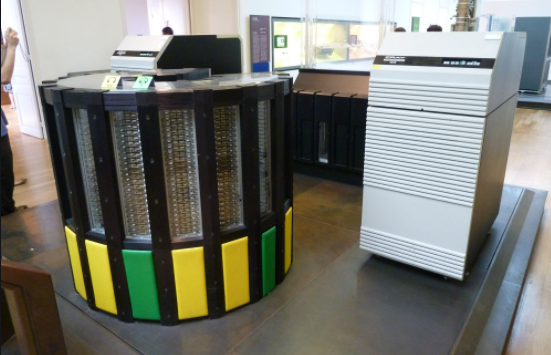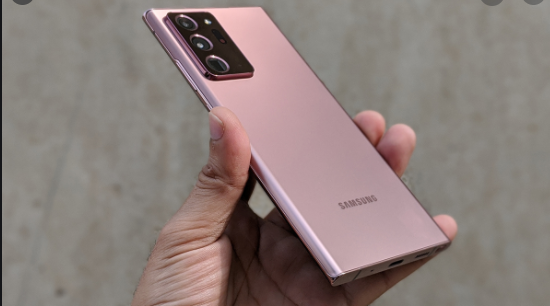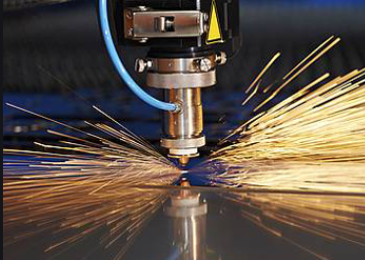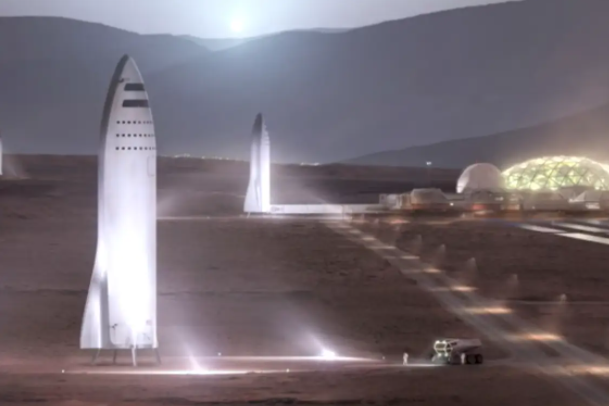Introduction
When I was a kid, I would sometimes watch silent movies, especially when I was at my grandparents’ house and particularly the ones featuring Laurel and Hardy. This brought me a bit of curiosity for the early age of films. I remember my parents telling me abut different stories regarding the first years of cinema, the craziest of which was the first screening of the ‘L’Arrivée d’un train en gare de la Ciotat’. This movie filmed and directed by the Lumière brothers simply shows a train arriving at a station. I was told that the people watching the movie were so scared of seeing a train coming directly to them from the screen that some panicked and left the theatre. Now, in reality, this might not have happened; people did not physically leave the theatre but the film indeed:
“had a particularly lasting impact; yes, it caused fear, terror, even panic.”
Hellmuth Karasek, Der Spiegel

A matter of generations?
Lately, I was thinking of how technology and especially digital technology does not really surprise us that much anymore. People belonging to an older generation might still be surprised by things such the touchscreen or biometric recognition technology (face recognition or fingerprint recognition) found on something as small as a phone. Perhaps they can also be surprised by the enormous advances in computer technology such as the power of modern computer and their storage capacity that keeps increasing. Millennials and Gen Zs though, seem to not share the same surprise for inventions. Supercomputers and Quantum computers are solving mathematical problems that the human brain can barely even theorize.
Nevertheless, I have never seen people scared or particularly surprised by new technology. It seems that the more technology advances, the less we are astonished by new inventions. People were astonished at the iPhone touchscreen when the first iPhone came out, no more buttons, now your whole phone was a screen. Phone cameras then started competing with digital cameras, and now only professional-grade cameras are still widely sold since phone cameras cannot yet compete with them. Now phones have the computing and storage capabilities that computers had only a decade ago. Modern phones are more powerful than the 1980s Cray-2 Supercomputer, and they are miles away from what smartphones were a mere ten years ago. I found a Samsung article that states “our first Galaxy S smartphone released in 2010 had just 512MB of RAM and 8GB or 16GB in total storage”, a new top-grade Samsung phone like the Galaxy S was in 2010 is the Note20 family, consisting of the Galaxy Note20 and the Note20 Ultra, the more powerful of the two, the Ultra, has 12 GB of RAM and up to 512 GB of storage. It can also slot a microSD to boost the capacity to 2TB, which is a lot more than most modern PCs’ built-in storage (not counting external hard disks).


What about space?
It just seems to me that we will not experience surprise or panic at a new invention, sure we might look at a car that is driving itself if we see a Tesla on the highway with the driver looking at his or her phone and be a bit confused about the situation, but the feeling will probably die off in a few minutes. Allied pilots in World War Two were utterly baffled when they first encountered Axis jet planes such as the Messerschmitt Me-262, the plane was so much faster compared to what the allied were flying that is was untouchable. It brought fear to pilots and soldiers on the ground. Nowadays, even military technology seems standard, after the invention of the atomic bomb, is there anything that can surprise us?


I would say that the only way to surprise the human race right now would be to invent things that we have heard only in Sci-Fi movies (some, like laser, have already been invented) like teletransportation or spaceships. Spaceships might nevertheless occur before the end of this century since some people, mainly Elon Musk, seem to be very focused on colonizing Mars by 2050. Sure, they will not resemble Star Trek or Star Wars spaceships, but they technically will be.

Conclusion
In my opinion, this lack of amazedness is a bit sad, humans have been amazed by new technologies and inventions since the beginning of time, and now we are depriving ourselves of this feeling. Have we become too used to new and ground-breaking inventions, especially the leap that the 20th century was for technology? Did all the inventions that happened in just 100 years just silenced our astonishment and curiosity for new things?
More importantly, will the human race ever be shocked to the point of fear again, like the people in the movie theatre were when viewing a train arriving at its station?


I do not think I have given this much of a thought before, but I think that you are right and that it is very interesting to reflect upon how we react to new developments nowadays. It is certainly true that we are less faced about discoveries than we were a century ago. This might be due to the vast amounts of new technologies that have been released in the last 100 years or so. The speed at which developments have been released to the general public has been even faster in the last 10 years, which I guess justifies our lack of wonderment.
I do hope that eventually, we will be amazed once again by the scientific discoveries, though I doubt that the reactions will be as extreme as with the first screening of the ‘L’Arrivée d’un train en gare de la Ciotat’.
I love the idea about being shocked by technology and I agree it is rather sad that shock and amazement are no longer a reaction to new technologies. Some mild curiosity and may be a little bit of FOMO yes, true shock and amazement not so much. I wonder if it is due to the instant gratification, we have all come to expect now a-days? Binge watching for example is a big thing. Yes, some popular shows are released once a week, i.e. Game of Thrones or Grey’s Anatomy, however a lot of people would rather wait for the season to end so they can binge watch it all at once instead of keeping up with it weekly.
What a great read! The feeling of excitement (or lack thereof) for new inventions or technologies is something I’ve noticed over the years as well. Like you wrote, new phones are getting almost as powerful as some full-blown computers, but when they are introduced there are rarely many eyebrows raised at the feat of engineering that the smartphones of today are. I also feel like nowadays people get the most excitement for a new invention or technology from the ‘hype’ building up to its release, to then immediately be looking forward to the next iteration of said product. Maybe it might be that, because of these advancements people are exposed to so many things in a day, every single day, that we have become numb in a kind of way to revolutionary inventions so we just take them for granted. It’s a shame we as people don’t take a step back sometimes and admire the progress and technological advancements we have made, even over just the last decade. Thank you for your wonderful contribution!
Interesting read! I really haven’t given this subject much thought, but after reading this article I started to remember that while as a child I was super excited to watch the new releases of iPhones (and would stay up at night to watch them), now I’m much less excited. While this may have to with their current pricing (and my smaller budget), I do believe it could also be something else: that they are just not big leaps anymore.
This is such a beautifully written blog! The way we as people are kinda losing fascination just reminds me so much of loss of innocence, but I do think that a lot of it has to do with the system in which knowledge is taught to us. Rigid school systems tend to be the silent killer of natural curiosity, and it is from this curiosity that amazement comes from. I think you perfectly highlight the generational difference of amazement. High technological advancement is often seen as a given fact for younger generations, but for older generations it is almost as if the Future World is not meant for them. Success is mechanical, but amazement is natural, but the bar is set on the latter, which dehumanizes our relation with new technologies:/ but there is always hope, cuz even if we are often pretty shit at being human, the good thing is that we can always learn from being shitty humans haha
Nice read! This is something I hadn’t thought of in a while. So much is happening around us regarding advancement, and it is quite frankly amazing, but it does seem we don’t even blink but rather sigh at the so-manieth new phone with ‘sure’ a better camera or better screen. Unless you speak with people who are super hyped about a new release and can maybe tell you a lot about specs, often we don’t really seem to care or even actively think of what we as humans are creating. A few years ago, I read an article on an interview with a man who’d been released from prison after a 44-year sentence and was stunned at seeing people for example ‘talk to themselves’ while they were calling with their earbuds in, using their smartphones and using devices he’d never seen but we find super common these days. Everything was majorly different from what he remembered. So, I guess fascination does fade when you experience fast development from up close, and you stop realising how far we’ve come in just a few decades? I’d be very interested to see what will become the next big ‘shock’, if there will be any. Maybe, like you mentioned, someday Musk’s dream trip to Mars, or is that just as boring as a new phone already, too?
Dear Gregorio, thank you for your interesting blogpost! I, for one, do not think that we as humans have lost our astonishment for new things or that we are too used to new technology. I believe even now, when there is a new invention or new development in existing technology, we are astonished and amazed. For example, when Apple announced the Touch Bar in the MacBook or when AR and VR were introduced, everyone was curious and amazed. Even now, if someone were to put a VR Gear for the first time it would be an astonishing experience for them.
On the contrary to your post, I think this is one of the most exciting times for new discoveries where new technology is coming up so regularly that there is a new thing to be astonished and amazed about everyday. For example, in the final presentations that we had for this course, I got to know about so much new technology that is under development that both excites and frightens me. Like the implantation of chips in humans’ (arms and brains) is so exciting yet frightening about what could be the possibilities.
I am personally grateful to be alive during this time when there are so many discoveries taking place because so many advancements (bases) have already been made. Because we already know so much, even time travel might not be a too far-fetched thought with cyborgs and lasers already being a reality.
I definitely agree that you pose a valid point here; it very much does seem like we have increasingly lost the element of awe and surprise with newer technologies. I personally think a lot of this has to do with great technological “barriers” rather than one step advancements of preexisting technology. What I mean by this is – for example – a switch from a black & white to color television was a greater leap than maybe a small color television to a big color television was. Same with a landline to a mobile was a greater leap than from a mobile with buttons to a touchscreen mobile.
I say this because – speaking for myself – great leaps like “virtual reality” or “open world games” very much did leave me in awe, just as I expect flying cars will leave all of us in awe as well. Perhaps we have to hit these breakthrough barriers that open up a whole new level of technological development…
Loved this take on technology! I wonder to what extent this is related to the rationalization of technology. I believe the feeling of astonishment can come from a lack of understanding, a disbelief. When you have a certain set of beliefs – for example, on technology – and these beliefs are surpassed by a new invention, what you previously believed is put into question, creating the feeling of astonishment. However, as people understand more about technology, and thus the way it develops, an invention is less likely to be experienced as a rupture as people understand how technology has built up to this point.
Furthermore, I wonder to what extent fiction influences our feeling of astonishment. This quote commonly attributed to Henry Ford, the car manufacturer sheds some light on it: “If I had asked people what they wanted, they would have said faster horses.” People’s ability to be astonished is influenced by how much they’re able the imagine the invention – and if all inventions are just derivatives of things that already exist, they’re not going to be surprised. The same if they’ve already seen something similar to it in sci-fi. However, I think a lot of inventions are inspired by media – like the “flying car.” For inventions to truly be astonishing, they need to be creative – which might need to come from people who write the sci-fi. So maybe there’s some potential for STEM and the arts/humanities to work together there 🙂